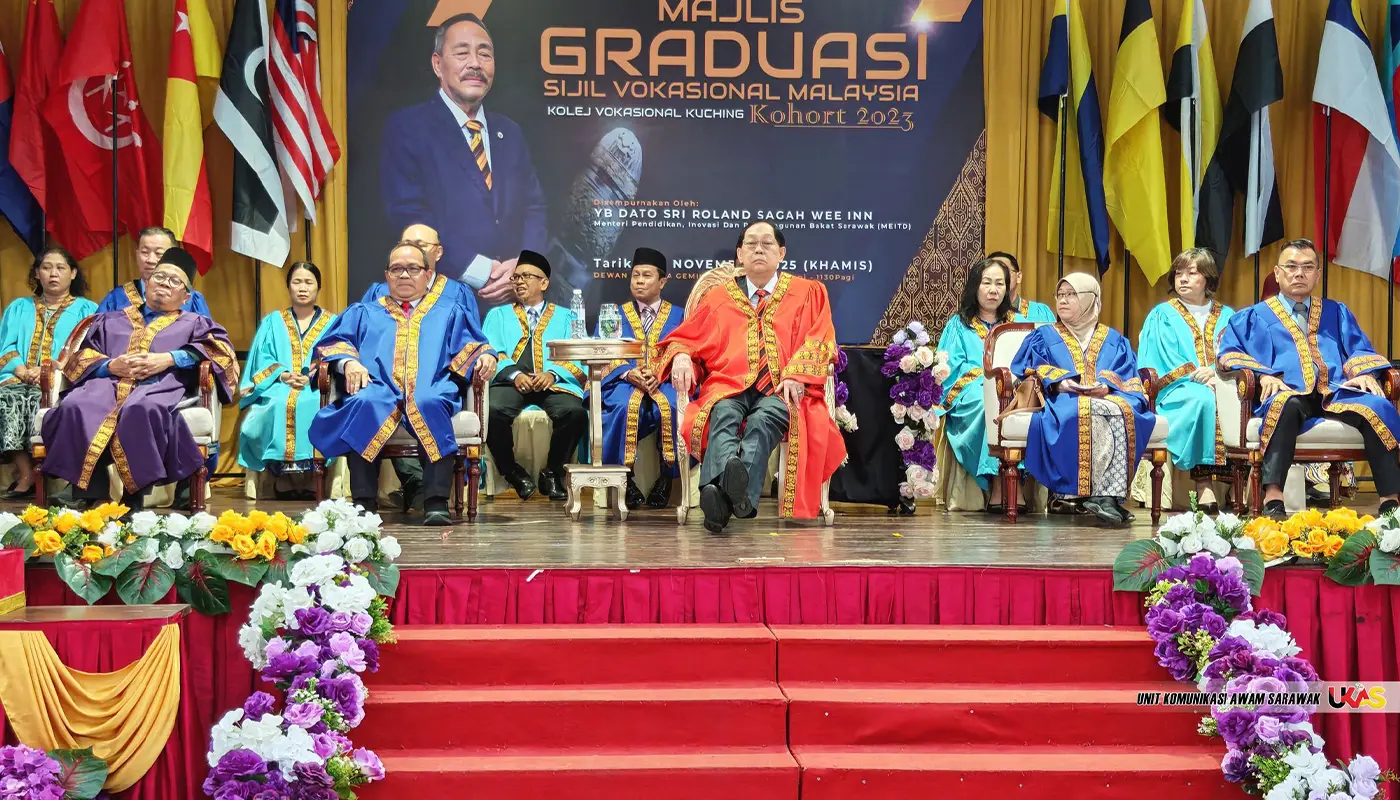KUCHING – The Sarawak Government is intensifying efforts to develop human capital through a strengthened Technical and Vocational Education and Training (TVET) programme that emphasises adaptability, ethics and community contribution.
The push aims not merely to increase graduate numbers but to produce a workforce equipped for evolving industrial demands, including green technology, automation and the digital economy.
The strategy aligns with Sarawak’s longer-term development blueprint under the Post‑COVID‑19 Development Strategy (PCDS) 2030.
Speaking at a graduation ceremony, the Minister of Education, Innovation and Talent Development, Dato Sri Roland Sagah Wee Inn, outlined measures to widen progression routes for TVET learners.
These include formal recognition of TVET majors, expanded Memoranda of Understanding with industry partners and deeper collaboration with specialised training bodies such as Sarawak Skills, CENTEXS, polytechnics and community colleges.
The minister’s remarks were delivered on his behalf by Datuk Francis Harden Hollis, Deputy Minister of Education, Innovation and Talent Development, during the Malaysian Vocational Certificate graduation for the Kuching Vocational College Cohort 2023.
The ceremony celebrated 171 graduates who completed vocational programmes designed to prepare them for immediate entry into the workforce.
Officials said the state is fostering partnerships that link training to industry needs and professional certification, mirroring initiatives elsewhere in Malaysia that have produced high employability rates among TVET alumni.
Advocates argue that industry‑attached training, curriculum alignment and certification increase graduate marketability and ensure training remains relevant to employers.
Institutions such as Kuching Vocational College are singled out for their role in instilling technical competence, discipline and workplace ethics.
The minister’s office stressed that vocational graduates contribute beyond manual skills; they are expected to play a part in industrial innovation and local economic growth.
Practical support accompanies policy. At the event, Datuk Francis Harden Hollis approved RM20,000 from his Small Rural Project fund for the Kuching Vocational College Parent‑Teacher Association, signalling continued investment in student welfare and college facilities.
State reports and commentary note that Sarawak is expanding a network of technical centres and strengthening ties with strategic sectors including energy, engineering, agriculture and digital services.
The adoption of modern teaching methods, including early use of artificial intelligence in some centres, is presented as part of efforts to produce IT‑literate and competitive trainees.
Sarawak’s TVET ambitions are framed within PCDS 2030, which identifies education and skills development as foundational to the state’s transformation into a sustainable, prosperous economy.
Planned interventions seek to raise enrolment in technical courses and increase the pool of science‑stream learners, with the wider aim of narrowing structural skills gaps as the state’s industries evolve.
The government maintains that sustained investment in TVET, combining improved curricula, industry collaboration and student support will create resilient, ethical and employable graduates who can contribute meaningfully to both local communities and the broader economy.







